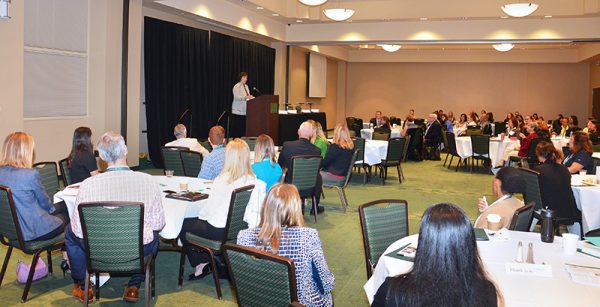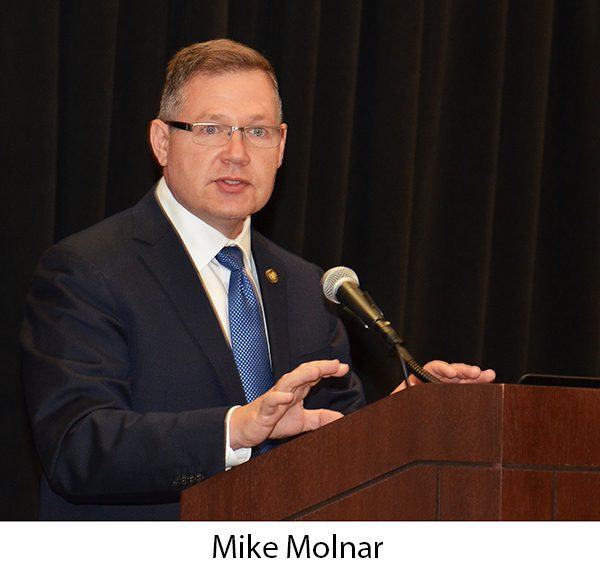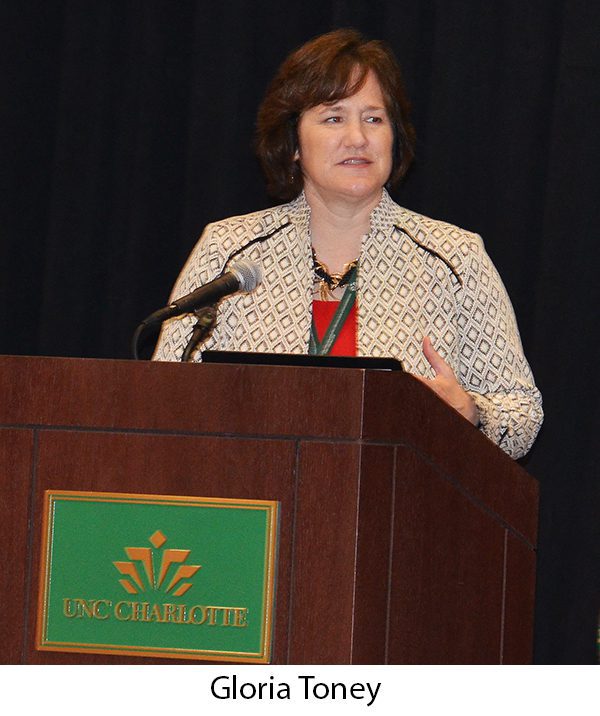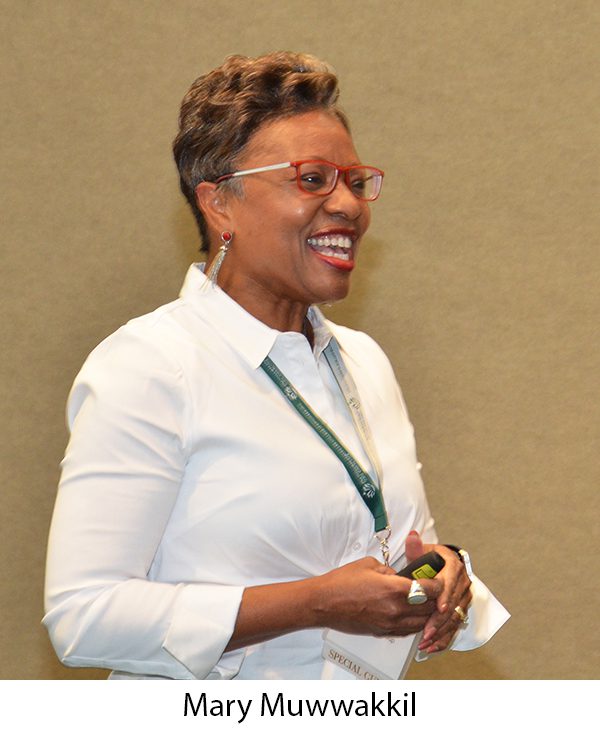Summit Highlights, Encourages Importance of Women in Manufacturing

An essential part of the United States and North Carolina economies, the continued success of manufacturing is dependent on innovation, and that innovation is driven by a diverse workforce that relies on the engineering, technological and scientific talents of women. That message, and discussions on how women will continue to impact and build successful careers in manufacturing, were topics of the Women in Manufacturing Summit held at the University of North Carolina at Charlotte on Oct. 11.
Hosted by the William States Lee College of Engineering, the summit brought together students, industry professionals and university faculty and experts. The full title of the event was “Women in Manufacturing – Chipping Away at the Glass Ceiling and Stereotypes: An educational, inspiring and networking event focusing on current and future women engineers in manufacturing.”

The day started with a special welcome from Dr. Mike Molnar, director of the Office of Advanced Manufacturing at the National Institute of Standards and Technology. Dr. Molnar is also founding director of the Advanced Manufacturing National Program Office, an interagency team that works to coordinate federal activities in advanced manufacturing as part of the Congressionally designated National Program Office for Manufacturing USA.
“Manufacturing is essential to economic security and national security, which is why this event is so incredibly important,” Molnar said. “The reason we have such a high standard of living and high productivity is because of innovation. Innovation is where manufacturing lives. Seventy percent of the patents in the United States are awarded to manufacturing companies.”
Most people think manufacturing in America is centered in the Great Lakes region, but there are also strong manufacturing centers in California, Texas and North Carolina, Molnar said. “This is the heart of manufacturing, right here, and that’s exciting. There are 7,800 manufacturing firms in North Carolina representing $100 billion a year. The life blood of this manufacturing isn’t the large companies. It is the small and medium companies, and that is where the most innovation is found.”
One of the strongest drivers of innovation is diversity, Molnar said. “The best design innovations always come from cross functional teams, and that’s why manufactures of all sizes need women. Women are underrepresented in manufacturing. Overall we need many more scientists, engineers and technician, and certainly what we need most is a diverse workforce, especially women.”

The keynote speaker for the summit was Gloria Toney, executive director of R&D Medical Solutions at Sealed Air. Toney has been as at Sealed Air for 29 years, and is a founding member of its Global Women’s Initiative Network.
Speaking to the students and young female engineers in the audience, Toney said it is vital that they take responsibility for their on successes. “Don’t play the blame game,” she said. “The person who can impact your career the most is you. If don’t get an assignment or promotion, don’t let first thing that comes to your mind be ‘It’s because I’m a female’ or ‘It’s because I’m a minority.’ Instead allow yourself to say ‘I’ve got to improve somewhere,’ or ‘Is there something I’m missing?’”
Some other takeaways that Toney offered included:
- “First, it is very important to ‘earn it.’ We’ve all heard a lot about working hard, but what does that mean? Working hard today is really about working smart. It’s not how many emails you can read in a day. Working smart is setting priorities and saying ‘What do I really need to get done?’
- “Challenge yourself. Look for opportunities to raise your hand when no one else is raising their hand. Do just a little bit more, and not just quantity, but quality as well.
- “Lay out your career goals and then make good choices about opportunities that will get you there.
- “Networking is so important. It improves your credibility and visibility. It is a very powerful skill to develop. Some people are uncomfortable doing that, and if you’re one of them I’d say practice. Give yourself a goal such as ‘I’m going to make one new contact a week,’ and then make it happen.
- “It is important to get feedback and then do something with it. Ask clarifying questions and if your feel the feedback doesn’t fit you, then ask yourself “Why is that perception of me out there?
- “Be proud of your successes, and don’t be afraid to toot your own horn.”

Another speaker at the event was Mary Muwwakkil, an alumnus of the UNC Charlotte Mechanical Engineering Technology and MBA programs. Muwwakkil has been a professional engineer for more than 30 years and is currently manager of the Project Management Office in Transmission Applications for Schaeffler Group.
“My topic is ‘What can women do to impact manufacturing?’” Muwwakkil said. “I would say we are already doing it. You can look around the room and see how many people are making great impacts. I think the good news is we can do the same things men can do. There are very few differences between what we can do to impact manufacturing and what men are doing.”
To succeed as engineers in manufacturing, the most important thing is ‘performance’ Muwwakkil said. “As engineers, as women engineers, we have to hit the ground running and prove ourselves in whatever industry we pursue. You must be ready to perform and do a great job. You must be a great engineer.”
Women do have to go above and beyond and put in extra effort, Muwwakkil said. “As women we do have to work harder. You can spend time saying ‘That’s not fair,’ and it’s not. You can work to do something about it, but while you’re doing something about it you still have to continue to work hard. That was tough for me to swallow early on in my career. The standards were not the same. In order to move ahead I had to work harder. I started my career as an engineer in 1985. Things are a lot better now. They’re not perfect, but they’re a lot better.”
Other advice that Muwwakkil offered included:
- “Be a problem solver. Look for problems and then go out and solve them. Find ways to do things more efficiently. Make an impact.
- “Find the thing that you can do better than anyone else. Find your niche.
- “Spend time in the manufacturing plant. Don’t be afraid to get your hands dirty.
- “Find a mentor and find a sponsor.
- “Consider regional and international assignments.
- “Be yourself and be the best engineer you can be. But remember, ‘performance’ is always first.

Topics at other sessions and roundtable discussions during the summit included “Creating a Balanced Work Life,” “Women Can and Should Negotiate,” “The Manufacturing Mile,” “What HR Can Do for You,” “Making a Job Change” and “Building a Positive Support System.”